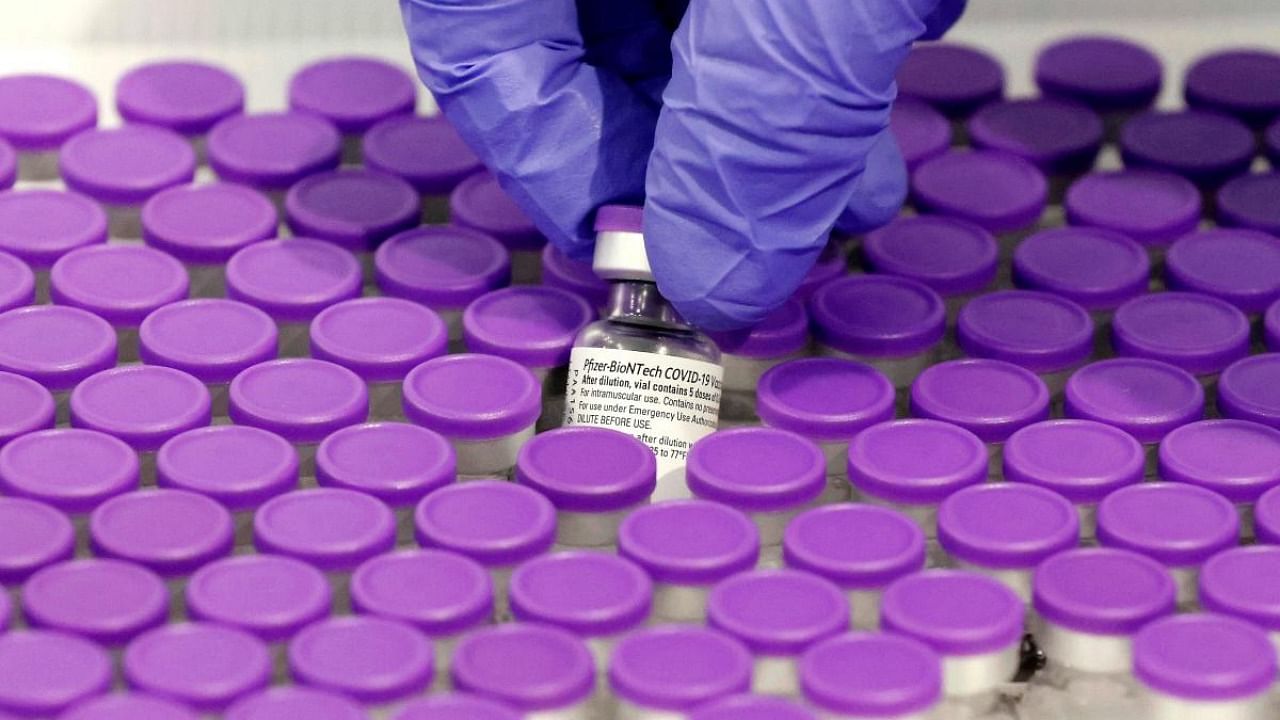
The WHO's vaccine advisory group said Tuesday that the second Pfizer-BioNTech anti-Covid-19 vaccine dose could, in exceptional circumstances, be administered a few weeks beyond the recommended 21-28 days.
Some countries have begun delaying the second jab to give more people their first dose, despite German firm BioNTech warnings that there was no data backing the "safety and efficacy" of doing so.
The World Health Organization granted emergency validation to the Pfizer-BioNTech vaccine last Thursday, paving the way for countries worldwide to give swift approval to its import and distribution.
The vaccine was the first to receive the WHO's "emergency validation" since the novel coronavirus broke out in China a year ago.
The jab is to be administered in two doses -- but the WHO's Strategic Advisory Group of Experts on Immunisation (SAGE) said Tuesday that the second one could be delayed, in order to allow more people to benefit from the first.
"SAGE recommends the administration of two doses of this vaccine within 21 to 28 days," the group's chair Alejandro Cravioto told a virtual news conference.
"While we acknowledge the absence of data on safety and efficacy after one dose beyond the three-four weeks studied in the clinical trials, SAGE made a provision for countries in exceptional circumstances of vaccine supply constraints and epidemiologic settings, to delay the administration of the second dose for a few weeks in order to maximise the number of individuals benefiting from a first dose."
SAGE also recommended that the vaccine only be administered in settings that can deal with a potential anaphylactic reaction.
It said it could not provide a recommendation for its use during pregnancy without seeing further safety data.
It also urged Pfizer-BioNTech to come forward with information that would allow them to make a decision on recommendation for breastfeeding women.
The group recommended vaccination be offered to people who have had the virus, but said such people could delay taking it so that others with no prior exposure could have it first.
SAGE also said it did not recommend Covid-19 vaccination for travellers, as it would breach the principle of equity.
BioNTech warned earlier Tuesday that there was no data backing the "safety and efficacy" of delaying the second shot of its Covid-19 vaccine beyond three weeks.
BioNTech, which developed the vaccine with US giant Pfizer, said its clinical data showing 95 percent efficacy was based on a two-dose schedule separated by 21 days.
"The safety and efficacy of the vaccine has not been evaluated on different dosing schedules," it said.
"Although data... demonstrated that there is a partial protection from the vaccine as early as 12 days after the first dose, there is no data to demonstrate that protection after the first dose is sustained after 21 days."
Faced with limited supplies of the vaccines, Denmark said Monday it would space out the jabs by up to six weeks, while Britain has said it would wait up to 12 weeks before giving the second jab.
Germany too is mulling pushing back the second shot to beyond 21 days.